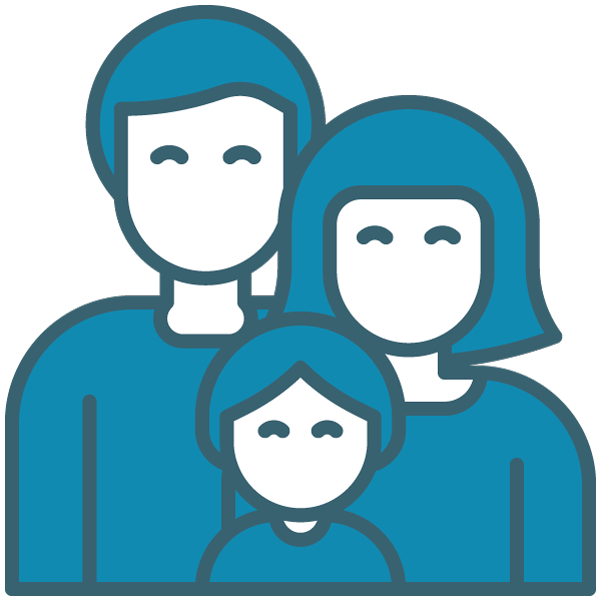The Questions to Ask Before Nannying an Autistic Child

Just like any other role, Nannying an autistic child has every chance of being a highly rewarding role. A role defined by moments of joy and also moments of challenge. But to give it every chance of being a success – for the child, the family and the nanny – it’s really important to go into it fully prepared.
So we’ve invited Laura Hellfeld, the Nurse and Sleep Consultant, to guide what to ask during the interview process.
Hello, I’m Laura
I am an independent Nurse and Sleep Consultant at ‘Laura the Neurodivergent Nurse’. My work specialises in supporting neurodivergent (ND) people; many of the young people I support are Autistic.

My mini-bio:
I am an independent and freelance Nurse Consultant supporting our Neurodivergent community members.
I’m an Autistic, PDA and ADHD Health care professional, consultant and advocate. My education includes a Masters in Nursing (RN, MSN), Public Health Nursing (PHN) licensure, and a certified Sleep Consultant.
Here’s a link to my Facebook page:
Recently, I have connected with nannies after having delivered a series of childcare webinars about Autistic children and our community. And I have received some great questions about Nannying an autistic child.

One of the most common questions I received was, ‘What questions should I ask of the Autistic young person’s parent/carer before I start?’. So, here they are!
The questions you should ask before Nannying an Autistic child
Here’s a starting list of questions to help you get that conversation going. It’s not exhaustive, but it’s a great starting point to help you understand the role, the family and the child.
What are their interests?
Autistics tend to make deep connections to our areas of interest. We can become quite immersed in these passions, which are incredibly important for our mental health and Autistic joy. Our community refers to these as our deep interests and passions.
An Autistic young person may be passionate about geology, board games or dinosaurs. You may find it helpful to look up some information about the topic beforehand. This way, you can share the enjoyment if the Autistic young person wants to share this interest with you. Autistics tend to connect over interests, and this can be a great way to begin a bond with the young person.
Deep interests and passions: terms often used in the Autistic community to convey our great connection to a subject matter or activity. We have a passion for these, and we love immersing ourselves in them. Some Autistics explain that their deep interest is highly interconnected to their daily life and emotional well-being. So much so it is like an extension of themselves.
An example may be an Autistic person who is passionate about Pokémon and spends time talking to others about Pokémon, plays Pokémon with others and enjoys reading about Pokémon. They become like an expert on Pokémon.
How does this young person communicate?
Communication with a young autistic person is vital to be able to take care of them. Many Autistics speak and need non-speaking time or use AAC (Augmentative and Alternative Communication).
Assistive Ware describes AAC as “Communication devices, systems, strategies and tools that replace or support speech. These tools support a person who has difficulties communicating using speech.”
Assistive Ware
As the quote implies, communication tools can vary widely, and it can be helpful to familiarise yourself with the young person’s communication styles before taking over their care.
Do they have any co-occurring medical conditions?
Knowing about any medical conditions beforehand will allow you to learn more about the condition before taking on the young person’s responsibility. You can then be best prepared to assist with medical and, potentially, medication needs.
Co-occurring – a condition that someone can have while also being Autistic.
Raising Children Australia quotes that about three-quarters of Autistic children are diagnosed with another condition. Such conditions may include food allergies, diabetes, hypermobility or celiac disease.
Raising Children Australia
Do they need help with self-care tasks?
These self-care tasks may include feeding oneself, dressing and toileting. Society often places pressure to not need help with self-care tasks past a very young age.
We often hear statements like “You’re too old for my help’ or ‘Aren’t you a big girl now?’
As mentioned above, Autistics are likelier to have a co-occurring medical condition. Therefore, they may experience more fatigue or pain and need more of your support. In addition, dyspraxia is incredibly common among Autistics.
The NHS UK defines dyspraxia as “also known as developmental co-ordination disorder (DCD)…and it affects movement, strength and coordination.” Therefore, many Autistics may need support in their older years.
NHS UK
An important note is that the young person’s support with self-care tasks may not be consistent. Therefore, they may be able to dress one day but need some help the next.
Asking for help is ok. Needing help is ok.
Are there any local or online community hubs?
Having connections within the Autistic community is vital for an Autistic person’s mental health and wellness. These are the kind of relationships in which young people can be more authentically themselves.
And by ‘community’, I mean an Autistic community. Are there any local activities that provide a place for Autistic young people to come together? Some good places to start looking are at your local library, gaming café or disability charities. These will be places where the young person is more likely to feel included and welcomed.

With parent permission and safety measures in place, you may also find online community hubs. For example, Spectrum Gaming (http://www.spectrumgaming.net) is a highly recommended activity for Autistic young people.
Whom do they enjoy spending time with?
Autistic people tend to create deep bonds with the people in their lives, including friends, family members, neighbours or anyone else. It’s really important to create time for these relationships. Sometimes young people have such structured schedules and miss these bonding times.
Some Autistic young people have many friends, while others may have a smaller amount. It greatly varies!

Please note that Online Friends – someone you meet and know only through virtual contact – are legit friends. Sometimes it can be hard to find time or access for in-person meet-ups, so online friends provide great daily support.
What are their comfort items?
The day-to-day has many unknowns, and comfort items are vital to our regulation and happiness. Comfort items may be a stuffed toy, blanket, or even a stim or fidget toy.
Knowing what comfort items the Autistic young person needs will help ensure they are available. In addition, many Autistic people enjoy taking their comfort items out of the house.
There is no age limit on comfort items.
There is no age limit on stim toys or fidgets.

It is very much part of Autistic culture for us to continue valuing comfort items into and through adulthood. We have fun telling others about our favourite comfort and stim items.
What are their sensory preferences?
I think most nannies know how Autistic people have individual sensory preferences.
The list of potential sensory preferences is as long as sensory variabilities exist. It can be incredibly helpful to ask beforehand if there are known sensory preferences. Here are some examples:

Light sensitivity – prefer sunglasses and a hat most of the time?

Temperature sensitive – prefer their food at room temp versus hot?

Noise sensitive – prefer ear defenders in public and around others?
A quick note – people can be:
- Hypersensitive or increased sensitivity
- For example – for someone to feel hurt when someone else brushes by them
- Hyposensitive or diminished ability to detect stimuli
- For example – a young person does not notice that they skinned their knees while playing
What Autistic advocates can I follow that will inform my care?
If there is a good thing about social media, there are so many fantastic Autistic role models sharing their experiences. Since the Autistic community is incredibly diverse and complex, you can find many potential people to follow and learn from.
So the next time you open up those social, feel free to start sending some follows!
What does the Autistic young person want you to know?
Let’s not forget about the most important person here. Hearing from the young person themself will give you insight into building your connection with them.
If you cannot meet the young person before starting your new role, asking their parent/carer to be a middle person and help move questions and answers between the two of you could be great. Asking the Autistic young person about what they want to share will let them know that you value their opinion and interests.
And again, if you need more help understanding how to take care of an Autistic young person best, we Autistic adults are happy to help answer your questions.

Want to read on?
And here’s another blog post we shared that aims to help nannies to get the language right around autism.


